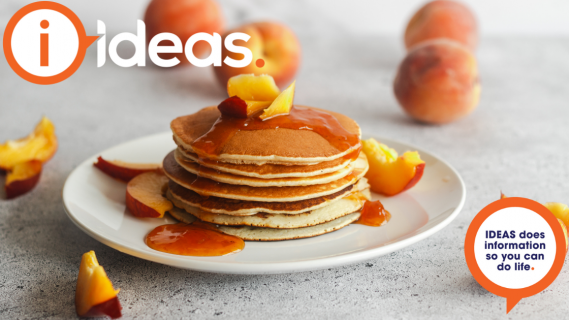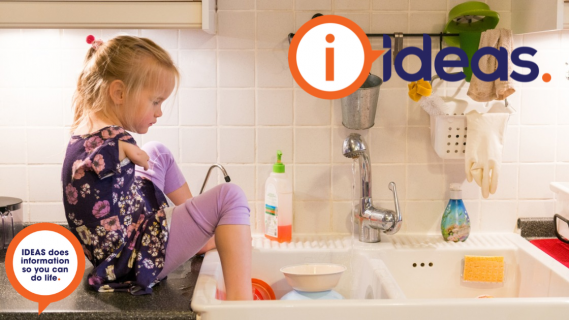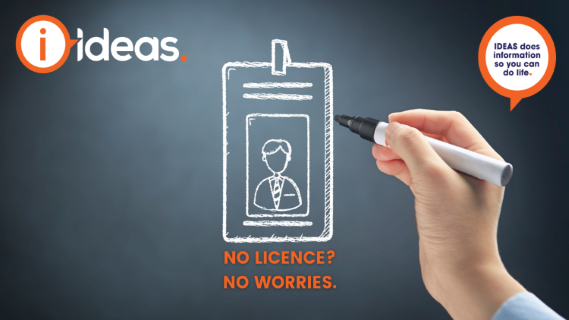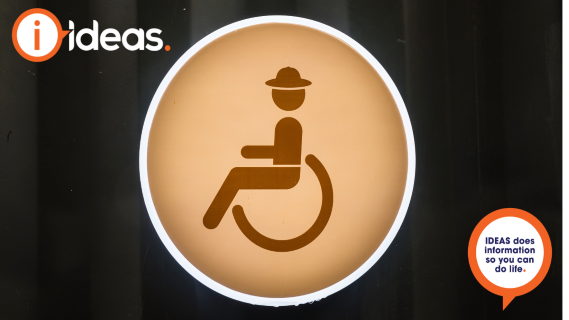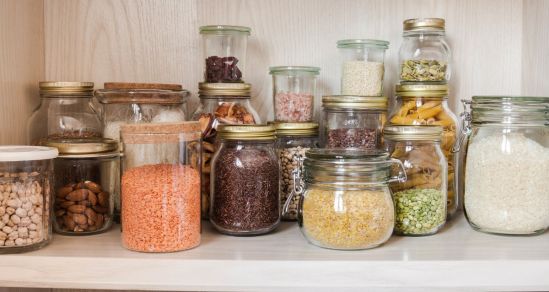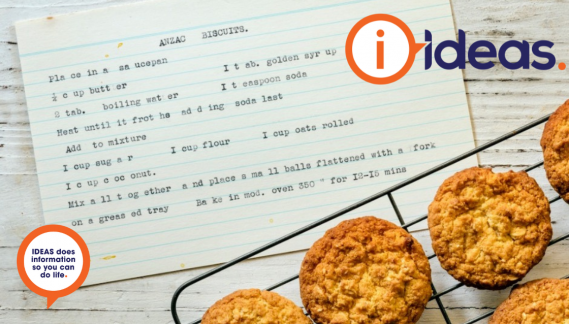If you are choosing to stay home and stay safe right now, this little handy helper will save you time at the supermarket, use what is in your cupboard and work with recipes you know are easy to source and make. This article explains what meal planning is, how it can help your budget, how to start, what the benefits are, and tips around planning. It also discusses sensory needs and meal planning. Plus we have a free meal planning template for you to use.
Simplify life and your food budget with a little planning. A common cause of stress in a typical home is: what to eat. A common stress at the moment is trying to avoid supermarkets for frequent trips. Routines can help take the chaos away AND stop last-minute panic, missing the essentials and fast-food purchases. It will stop those dreaded moments standing in front of a fridge wondering what you can make into a meal. Making the most of your budget comes from knowing the regular meals you and your family love AND that you find easy to make, so you no longer impulse shop.
What is meal planning?
Meal planning is an activity that allows you to “plan ahead” the meals you will make and eat for a certain amount of time. Usually a weeks’ worth of meals, and after practice, experienced planners can often make meals plans for longer timeframes. Planning allows you to take into consideration the needs of the people you are feeding. You may provide for someone with
- Swallowing difficulties
- Sensory needs
- With poor oral motor skills
- Dietary requirements or allergies
- Or need easy preparation due to immobility.
Benefits of meal planning
Meal planning allows you to
- Save Money (Fewer trips to the supermarket, less impulse buying, and less fast food)
- Avoid food waste (make the most of what you have)
- Save Time (Less procrastinating)
- Smooth decision making (You know what you have on hand)
- It is more manageable to have regular backup recipes than having complex and unfamiliar meals to make.
How to start
- Plan for 5 evening meals and 2 with leftovers. Any late nights can have simpler meals or leftovers. Stick to recipes that are simple and wholesome. On weekends you might choose to make some bulk meals that you can freeze for later. Consider ways to reuse any items to get the most from your budget.
- Plan your week (or month) and know which nights you need a later meal, or are eating out.
- Make a list of your “go-to” easy dinners. About 10 – 20 is a good start. Use recipes in rotation. Try and use recipes that will use up the ingredients you are buying in different ways. A good guide is to think of the foods you shop for each week. Remember snacks too.
- Write the meal plan out on a calendar. Meal Planning Templates and even apps are available online. Place the calendar somewhere you can easily reference it.
- Make your grocery lists and shop ahead of time. It helps if you know your regular purchases quantities of staples like bread, milk, coffee, tea, and fresh fruit.
Download our free ![]() Meal Planning Template to print and use.
Meal Planning Template to print and use.
Tips
- In the mornings, check your planner to see if you need to thaw any items.
- Check what is already in your pantry and fridge.
- Make the most of the ingredients. Double batch for later if you can. Slow cookers are handy for making big batches.
- Plan around weekly specials and buy only the ingredients you need.
- Eat seasonally and choose fruit and vegetables that are in season.
- If you can buy from zero-waste suppliers, you can purchase the quantity you need and save money. Buy items like pasta, coffee, tea, dried legumes, flours and spices, for example, from these suppliers in your choice of quantity.
- Learn from any mistakes. Life is a learning experience. And you will get better with practice. After a while, meal planning will become a habit and skill. Remember, the calm that comes from planning is food for the soul.
Sensory avoiders and meal planning
There is no one rule fits all approach. Parents know the frustrations of food being loved one week and hated the next.
Some nutritionists have meal plans for sensory avoiders or people who need plain and soft foods. Ask your paediatrician, GP or allied health specialists to recommend resources to help you.
For the tech-savvy
Take this a step further and using the supermarket website or app, you can save your shopping lists into the weekly plan groups. Major stores have a "Shop with lists" function or saved shopping lists.
That way when you are REALLY time-poor, your "click and collect", Pick up in-store, or home delivery service can do all the work for you. You already have the plan for the food, and the shopping is done for you.
Not a planner?
If you are not a planner, and the thought fills you with dread - don’t feel you have to stick to a rigid plan! You can opt for a more, “sit down and think about it approach” that way you can jot down some expectations and work around that. Keep your budget in mind, or the process is worthless, and you will still spend wasted time and money in the supermarket.
If all else fails, stick to your budget at the checkout, and once home with your groceries, write out a plan for how you want to use them up.
Return to Money Matters.
Ideas does information so you can do life.











































